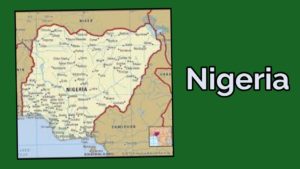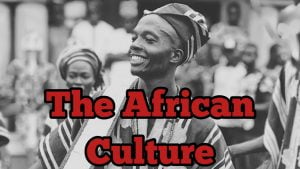What are the factors that led to the growth of nationalism in Nigeria and West Africa? According to Late KBC Onwubiko, nationalism is the patriotic sentiment or activity on the party of groups of people of Africans held together by the bonds of common language and common historical experience to assert their right to live under a government of their making of the preservation of their political, economic and social interest. It can also be defined as the opposition to foreign rule or domination.
In Nigeria, nationalist movement can be traced back to the 19th century when the Nigerian chiefs were resisting the western colonial administration. After a long period of silence, it resuscitated in the 20th century. Olayinka Badmus Macaulay is seen as the father of Nigeria nationalism. This is so because he was one of the earliest founders of nationalist activities in Nigeria. Aside from that, it was reported by Wikipedia that Macaulay opposed many colonial policies in the country.
In this article, we will be looking deeply into the factors that gave rise to nationalism in Nigeria and in west Africa as a whole. In other words, I am going to share with you the reasons for nationalism in Nigeria. It is pertinent that you read carefully if you really want to enjoy this work because I am going to point out both the internal and external factors that promoted nationalism in Nigeria and west Africa as a whole.

Also see: Past Leaders of Nigeria From 1914 Till Date
Internal factors that gave rise to nationalism in Nigeria
1. The introduction of western education: This was one of the major factors that led to the growth of nationalism in Nigeria. Western education provided a common language with which West Africa used to fight colonialism. It also enlightened people of West Africa to the evils in colonialism and that colonial rule was synonymous with violence which must be removed.
2. Return of educated elites: When the colonial masters came to West Africa, almost everyone was not educated and thus, could not understand the real aim of the colonial masters. The return of some educated elites like Nkrumah, Hartford, Azikiwe, Awolowo, Macaulay etc, who studied in foreign independent countries after seeing what a country enjoys by being independent came back to awake the spirit of nationalism in west Africa.
3. Emergence of vibrant political parties: No doubt, political parties during the colonial era also gave rise to nationalist activities in Nigeria and in west Africa as a whole. The emergence and growth of vibrant political parties like NNDP, CPP, NCNC, AG, etc, Led by vibrant and never say die politician like Herbert Macaulay, Nnamdi Azikiwe, Obafemi Awolowo etc, resuscitated the spirit of nationalism in Nigeria.
Also see: Names of Nigerian Presidents From 1960 till Date
4. Economic exploitation and dominance: When the colonial masters came to Nigeria, they started monopolizing all the trade activities. This act by the European firms or companies and its attendant economic exploitation also gave rise to the growth of nationalism in Nigeria and the desire of Africa to participate in the trade of their land and control their own economy. This was also one of the causes of the Aba women riot of 1929.
5. Increased cost of living: Another factor that led to the growth of nationalism in Nigeria was the prices of commodities which brought about high cost of living and fall in the standard of living thus life was made intolerable for the people.
6. Discrimination of the backs: The racial discrimination in the civil service practiced by the colonial rulers gave impetus to the growth of nationalism in Nigeria and in west Africa as a whole.
7. Social segregation: The type of segregation adopted by the colonial rulers whereby west Africa towns were divided into two, one part called European quarters meant for colonial rulers and another section for Africa irked Africans also gave rise to nationalism activities.
8. Imposition of tax system: The heavy taxes imposed on Africans and the control of the money realized from such taxation helped to spark off nationalist activities in West Africa.
9. The role of the press: The emergence of African owned press and newspapers such as the West African Pilot, Lagos Weekly News, etc, through their criticism of colonialism played an important role of sowing the seeds of early West African nationalism.

Also see: List of law reports in Nigeria
External reasons for nationalist activities in Nigeria
1. Loss of British prestige: Following the defeat of Britain by Japan, a non-European power, Nigerians realized that Britain and other whites were not as powerful as they thought. Thus, they considered putting more effort to see that colonialism ends in the country.
2. Effect of the Atlantic Charter: The publication at the end of the second world War of the Atlantic Charter signed in 1941 when America joined the war raised the hope of freedom fighters especially in West Africa.
The Charter which declared “the right of all people to choose the form government under which they will live” Fired the Zeal of nationalism in all colonies.
Also see: Examination malpractice in Nigeria: Causes, Effects and Solutions
3. Condemnation by USSR and USA: The second war established USSR and USA as the most powerful nations in the world. These two super that emerged after 1945, condemned European colonialism and imperialism in all its ramifications. The condemnation by the two super-powers acted as a moral support to the growth of nationalism in west Africa.
4. Independence of India: The independence of India 1947 rekindled the fire of nationalism in West Africa. West African nationalistd seem to have said that if India being a British colony for many years could shake off the shackles of colonialism, why shouldn’t West African countries.
5. Pan-African Congress: The activities of pan African congress from 1945 contributed immensely in rekindling spirit of nationalism in West Africa. Many African Intellectuals started taking greater part in the activities of the congress right from the October 1945 Manchester conference.
In that conference dominated by Africans, the congress demanded for black African Autonomy and independence. The Manchester communique acted as a catalyst that sparked of military nationalism in West Africa.
Also see: Reasons for the failure of indirect rule in Eastern Nigeria
6. Support by the labour party: The British labour party played significant role in the growth of nationalism in West Africa. The party condemned and criticized British colonialism and imperialism in Africa and Demanded for self government in Africa and demanded for self government in Africa for the sake of Labour.
To Nigerians, the condemnation and criticism by Labour Party acted as moral boosters to African nationalists because they came from the same people who imposed colonial rule on them.
Also see: Differences between the civil service and public corporation
In conclusion, it is important to note that criticism was one of the strategies adopted by the nationalist leaders in Nigeria for the struggle of total liberation of the nation. They criticized colonial rule and made Nigerians to see reasons why colonialism should stop. Hope this article was helpful? I would like to hear from you if you have anything to say on the above factors. Make sure you drop it at the comment section.

Edeh Samuel Chukwuemeka, ACMC, is a lawyer and a certified mediator/conciliator in Nigeria. He is also a developer with knowledge in various programming languages. Samuel is determined to leverage his skills in technology, SEO, and legal practice to revolutionize the legal profession worldwide by creating web and mobile applications that simplify legal research. Sam is also passionate about educating and providing valuable information to people.
It has so much enlightening me as an historian…. I’m so grateful but if I can get the a note on commonwealth of nation for my exam I will be glad
This is great
This is awesomely articulated. It is great indeed!
Please, I have noticed a mistake in this article. Herbert Macaulay is the father of nationalism in Nigeria because his group NNDP won elections in 1923, 1928 and 1933 under his leadership and his tenacious anti-colonial struggle won him that title before his death in 1946.
Nice work
Very interested